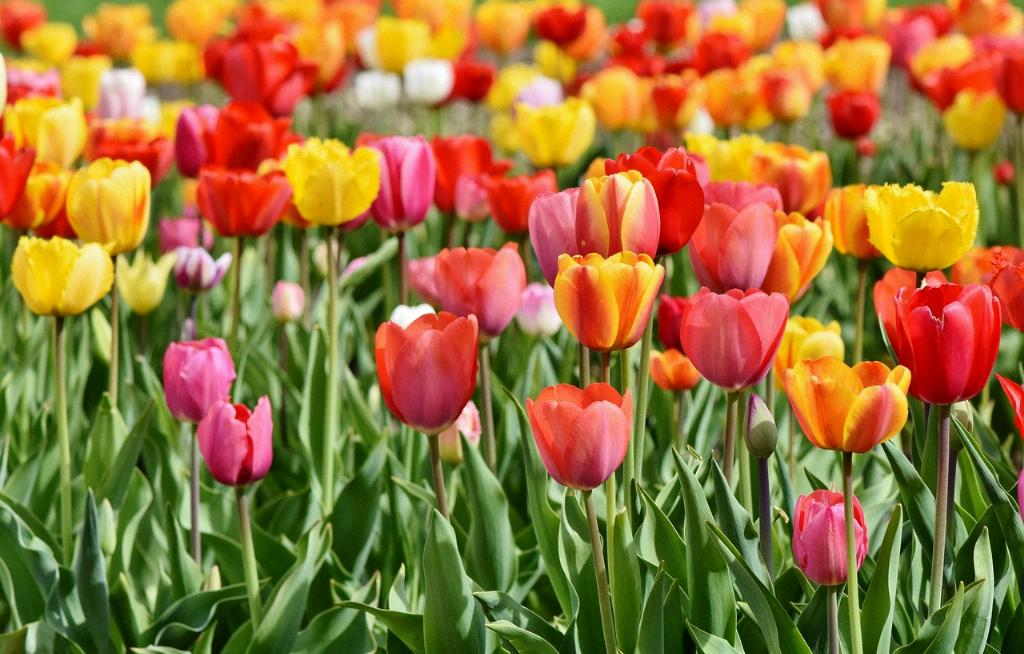When it comes to the toxicity of tulip bulbs, it is crucial to be aware that all parts of the tulip plant contain a substance known as tulipalin. This plant poison can be found not only in the bulb but also in the stem, leaves, and flowers of the plant. This means that consuming any part of the tulip plant can potentially lead to poisoning.
One of the common scenarios where poisoning occurs is when tulip bulbs are mistaken for edible onions. Due to their similar appearance, tulip bulbs may be inadvertently consumed, leading to harmful health effects. It is essential to exercise caution when handling tulip bulbs to avoid any accidental ingestion.
While some may question the severity of tulip bulb toxicity, it is essential to remember that the presence of tulipalin in the plant is what gives it its poisonous properties. Even though tulips are beautiful flowers adorning gardens, the toxicity of their bulbs should not be underestimated.
Many individuals may wonder about the exact symptoms of tulip bulb poisoning. Ingesting tulip bulbs can lead to symptoms such as nausea, vomiting, diarrhea, and abdominal pain. In severe cases, individuals may experience heart irregularities or difficulty breathing, necessitating immediate medical attention.
It is important to note that while tulip bulbs are not typically consumed intentionally as food, accidental ingestion can occur, especially in households where tulips are grown alongside edible plants. Educating oneself and others about the potential dangers of tulip bulb consumption is crucial in preventing incidents of poisoning.
Furthermore, it is advisable to store tulip bulbs away from areas where food is kept to minimize the risk of confusion between edible and toxic plants. Properly labeling plants in garden settings can also help individuals differentiate between plants that are safe for consumption and those that pose a risk to health.
In cases where accidental ingestion of tulip bulbs has occurred, seeking immediate medical assistance is paramount. Healthcare professionals can provide appropriate treatment to minimize the effects of tulipalin poisoning and ensure the individual’s safety and well-being.
As tulips are commonly cultivated for their ornamental beauty, it is essential for individuals, particularly gardeners and plant enthusiasts, to exercise caution when handling tulip bulbs. By being aware of the potential hazards associated with tulip bulbs, one can take proactive measures to prevent accidental poisoning incidents.
Considering the widespread presence of tulips in gardens and floral arrangements, it is essential to raise awareness about the toxicity of tulip bulbs. Educating individuals about the risks associated with tulip consumption can help prevent avoidable instances of poisoning and promote safety in gardening practices.
In conclusion, the question of whether tulip bulbs are poisonous can be unequivocally answered: Yes, tulip bulbs are indeed toxic due to the presence of tulipalin. Understanding the potential dangers associated with tulip bulbs and taking preventive measures are vital steps in safeguarding against accidental poisoning and ensuring the well-being of individuals.

